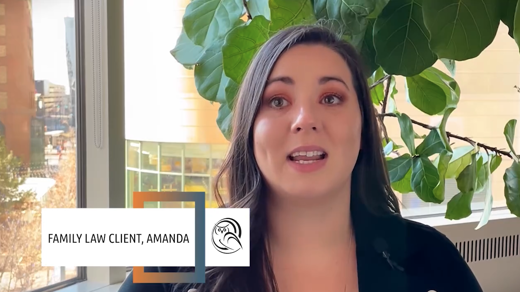What is Considered a Significant Change in Circumstances?
Courts in Colorado will only consider modifying a divorce decree if there’s a “significant and continuing change in circumstances.”
Some examples of this might include:
- Financial Changes:
- Income Change: A substantial increase or decrease in income of one or both parties that affects the ability to pay or receive child support or alimony.
- Job Loss or Change: Losing a job, changing careers, or experiencing a significant change in employment status that affects financial stability.
- Expenses: A substantial increase in expenses related to child care, healthcare, or other essential needs that impact the ability to comply with the court order.
- Relocation or Change in Living Circumstances:
- Relocation: A move by one parent that significantly impacts the current custody or visitation arrangement.
- Changes in Living Conditions: Drastic changes in living conditions that directly impact the well-being of the child, such as unsafe environments or housing instability.
- Child's Needs or Circumstances:
- Health Issues: A child developing health issues or special needs that require additional care or financial support.
- Educational Needs: Changes in the child's educational requirements that necessitate adjustments in custody or support arrangements.
- Parenting Ability or Behavior:
- Substance Abuse: Evidence of substance abuse or issues related to a parent's behavior affecting the child's safety and well-being.
- Domestic Violence: Instances of domestic violence or abusive behavior impacting the child's safety.
- Changes Over Time:
- Consistent Changes: Changes that have persisted for a significant period and are expected to continue, not just temporary fluctuations.
- Evolution of Child's Needs: The natural growth and development of the child, leading to different needs as they age.
For a court to consider modifying a previous order, the party requesting the modification typically needs to prove that the change meets the criteria of being both significant and continuing. Providing evidence and documentation supporting these changes is crucial when filing a petition for modification. Colorado family courts prioritize the best interests of the child and the fairness of the arrangements when considering such modifications.
Filing for Post-Decree Modification in Colorado
To legally amend a divorce decree in Colorado, here’s what the process typically involves:
- Determine Eligibility for Modification: Evaluate if your situation meets the criteria for a modification based on significant and continuing changes in circumstances since the original decree. Ensure that the changes directly impact the issues covered in the decree, such as child custody, support, or alimony.
- Gather Necessary Information and Documentation: Collect evidence that supports the significant changes you're claiming before filing a petition to modify divorce decree. This might include financial records, proof of income changes, documentation of job loss or relocation, medical records, or any other relevant information.
- File a Petition for Modification: Prepare a formal petition for modification specifically tailored to your situation. This document outlines the changes in circumstances and the modifications you are seeking in the existing court order. File the petition with the same court that issued the original decree. Ensure you pay the necessary filing fees.
- Serve the Other Party: Serve the petition and accompanying documents to the other party (ex-spouse or co-parent) involved in the case. Proper service is crucial to ensure they are aware of the modification request.
- Negotiation or Mediation (if applicable): Some courts may require parties to attempt negotiation or mediation before proceeding to a hearing. This step aims to reach an agreement without a court decision.
- Court Hearing: If negotiation or mediation doesn’t result in an agreement, or if it's not a required step, the court will schedule a hearing. Both parties present their cases, provide evidence, and argue their positions regarding the requested modifications. The judge evaluates the evidence presented and makes a decision based on the best interests of the child (if involving child-related matters) and fairness of the proposed modifications.
- Court Order: If the court grants the modification, a new court order will be issued outlining the changes to the original decree.
It's important to note that legal procedures might vary based on the specific circumstances of each case and the local court rules. Seeking guidance from a family law attorney specializing in Colorado law can be beneficial. An attorney can help navigate the legal process, ensure proper documentation, and represent your interests effectively in court.
Common Challenges in Post-Decree Modifications
Post-decree modifications present unique challenges that can vary based on individual circumstances. In Denver, navigating changes in custody or support can be particularly challenging due to fluctuating economic conditions and demographic shifts within the city. Clients often face hurdles such as providing sufficient evidence to demonstrate significant changes, which can be particularly arduous without professional guidance.
Another common challenge involves emotional and logistical barriers, especially when dealing with changes that significantly impact children's lives. Adjustments to custody or living arrangements can be disruptive, thus requiring sensitive handling and an understanding of both state and local regulations. Our firm is adept at anticipating and overcoming these hurdles, equipped with strategic legal approaches explicitly tailored to the complexities of Denver’s family law environment.
Frequently Asked Questions
What Documentation is Needed for a Post-Decree Modification?
For a successful post-decree modification in Denver, you will need comprehensive documentation to substantiate the significant changes you are claiming. Essential documents include, but are not limited to, financial records, evidence of income changes, employment status updates, medical records, and relocation information. Providing a transparent, organized file of this documentation can significantly enhance the clarity of your case. This helps the court understand the scope and impact of the changes.
Moreover, evidence that demonstrates the long-term nature of these changes, such as sustained unemployment or significant changes in financial circumstances, is critical. Specialized documents, depending on your situation, might also be required. For example, if seeking a modification related to custody, records that illustrate the child's evolving needs or changes in living conditions are necessary. Adequate preparation and presentation of these documents ensure your concerns are adequately addressed. At The Harris Law Firm, we guide clients through this crucial preparation phase, helping them gather and file the proper paperwork for their specific cases.
How Does Mediation Work for Post-Decree Modifications?
Mediation is a valuable tool in the post-decree modification process, especially in Denver, where courts often encourage parties to resolve their differences without a formal hearing. Through mediation, both parties meet with a neutral third-party mediator who facilitates discussion and assists in negotiating a resolution. This process can be more efficient and less adversarial than traditional court proceedings, fostering a more collaborative environment.
The goal of mediation is to find mutually agreeable solutions, particularly concerning changing financial circumstances or altering custody arrangements. Mediation may result in a binding agreement if both parties reach a consensus. If not, the issues can still be taken to court. It's beneficial to have a lawyer during mediation to ensure your rights and interests are adequately represented. Our attorneys at The Harris Law Firm are experienced in guiding clients through this process, helping craft fair agreements that adhere to Denver's legal standards.
How Our Post-Divorce Modification Lawyers in Denver Can Help
The end goal for post-decree modification is to resolve changes quickly and decisively, allowing both parties to move on with their lives. Our divorce modification lawyers at The Harris Law Firm have 250 years of combined experience and can help simplify what can often feel like a difficult and overwhelming legal process.
Whether you're seeking to modify a divorce decree due to changes in custody, child support, or alimony—or you're unsure how to amend a divorce decree—we can guide you every step of the way. Our experienced attorneys have a deep understanding of Colorado divorce modification laws and have honed their skills through assisting 8,000+ family law clients. Each attorney is backed by the collective strength and insight of our entire team.
We are skilled negotiators, but when your rights or needs are being overlooked, we are also aggressive trial lawyers who won't hesitate to fight for the outcome you deserve. We seek nothing less than the best results for you and your loved ones.
The Harris Law Firm can understand your needs and fight for your interests, no matter how complex the divorce circumstances. Call our firm today at (303) 622-5502 to get started with our Denver post-decree modification attorney.























